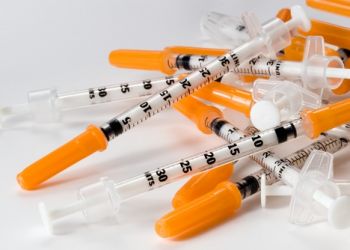This four-part webinar series explored how syringe services programs (SSPs) can use monitoring and evaluation (M&E) to better serve their clients and communities. M&E includes the collection, management, analysis, reporting, and use of program data to inform program planning and improve program efficiency and effectiveness. M&E can help SSPs better identify, respond to, and anticipate community needs; address gaps in service provision; and identify areas for growth. SSPs can also use M&E data to demonstrate their impact or address community concerns or opposition to harm reduction, which can be useful when applying for funding, strengthening community partnerships, or influencing local policies and regulations.
Each webinar in the series featured speakers from SSPs across the country, who discussed their M&E systems including what data they do (and don’t) collect, how they collect it, how they use it, and how their findings are shared back with their clients and larger community. The series highlighted diverse models for SSP M&E and how SSPs tailor their M&E systems based on their organizational structures, services, resources, goals, and communities.
Part 1: Client-Centered Models for SSP M&E
The first webinar, which was held on May 13th from 1:00 – 2:00 PM ET, included speakers from the Red Door Clinic (Minneapolis, MN) and People’s Harm Reduction Alliance (Seattle, WA), who presented an overview of their M&E systems, including the ideas behind their system design, how they’ve adapted their systems over time, and how their M&E systems helps them evaluate and improve their programs and services to ensure they are meeting their clients’ needs. Access the recording here. You can also access slides from NACCHO/University of Washington and the Red Door Clinic.
Part 2: State-Wide Models for SSP M&E
The second webinar, State-Wide Models for SSP M&E, was held Thursday, September 30th from 1:00 – 2:15 PM ET and included speakers from the New Mexico State Department of Health and Michigan Department of Health and Human Services who provided an overview of their M&E systems, principles behind their system design, how state regulation or policy shaped their system, and successes and challenges they’ve faced collecting and analyzing statewide harm reduction systems. Access the recording here and slides from NACCHO/UW here and Michigan Department of Health and Human Services here.
Part 3: Data Dashboards
Data dashboards are a valuable tool for collating, streamlining, visualizing and communicating activities, services, and outcomes. Dashboards allow SSPs to see their data in real time, which reveals trends and patterns, and for many SSPs, building a semi-automated system like a dashboard reduces administrative burden associated with grant reporting while also improving transparency and accountability. During this webinar, the University of Washington (UW) Supporting Harm Reduction Program (SHaRP) team provided an overview of data dashboards and key considerations to inform the development of dashboards for SSPs. Project Weber/RENEW, a community-based and peer-led SSP based in Rhode Island, provided an overview of their program dashboard, including a demonstration of the Google Data Studio system they developed and how it has been customized for various audiences, such as staff and funders. They also provided insight about their system’s limitations, and tips for SSPs about how they can engage in a similar process to leverage their data. This webinar was held on Tuesday, June 28th from 2:00 - 3:00 PM ET. Access the webinar recording here and the slides here.
Part 4: Toolkit Launch: Point-in-Time Surveys for Harm Reduction Programs
In August 2023, the University of Washington Supporting Harm Reductions Programs team launched a toolkit for syringe services programs (SSPs) interested in implementing a point-in-time survey. Point-in-time surveys can be a valuable way for SSPs to learn about their community, reduce routine data collection, and improve programs. Materials have been adapted for public use after being developed and tested during a Learning Collaborative with 7 SSPs supported by NACCHO. During this 1-hour webinar on Thursday, August 17th at 4 PM ET, we introduced the website components, including tools and tutorials, and North Carolina Survivors Union shared their experience implementing a point-in-time survey during the Learning Collaborative. You can access a recording of the webinar here, the webinar slides here, the Point-in-Time Survey toolkit here, and free support from NACCHO, University of Washington, and other partners through the National Harm Reduction Technical Assistance Center.



